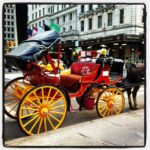Hello readers, if you are still out there!
I know going on a hiatus is not the smartest way to build readership in a newly established blog. Yes, I do have some excuses: I brought books to Cameroon, went to a conference with fellow Peace Corps volunteers, and…slow Cameroonian Internet makes the idea of posting pictures and blogs a somewhat painful activity… and… okay fine, I’m out of excuses – I’ve just been enjoying life au village and been neglecting this blog. Désolé.
So, what finally brings me back to this blog? Well, with my time in the Peace Corps coming to an end, I’ve wrapped up my projects and left the last few months to pure relaxation and taking in every last bit of my village life. However, I am not really the sort of person that do well with large quantity of free time, so I’ve taken up to language learning, yet again.
Prior to joining the Peace Corps, I proclaimed a somewhat silly statement to, “be one of those ridiculous people who speaks six languages and live on all continents except Antarctica.” Now with my ample free time until the end of my service, I’ve decided to tackle my 5th and 6th language: Spanish and Russian.
To me the most effective way to learn a language is still culture assimilation. Yet, that assimilation blurs the lines of self-identity. When I moved to the US, I was so eager to assimilate and “be an American”. I did such a stellar job that in university, my Asian peers were surprised when they learned that I was actually born and grew up in Taiwan, and can converse fluently in my own languages. The fine line between total assimilation and culture preservation within the self is a constant struggle.
An interesting article in the New York Times struck a chord with me. The article titled, “In Age of Globalism, Pardon My French” discusses the French language and the fact that majority of French speakers aren’t actually of the French nationality and the implication with the French culture and identity. When a Russian writer was asked why he writes in French, he answered, “It is the possibility to belong to a culture that is not mine, not my mother tongue.”
The article discusses mainly on the French language, but I think it’s applicable to all languages. As I travel the world, I find it is best to be willing to learn another language and be assimilated well into a culture. When you successfully learn a language and melt into a culture, there is a part of you that will be forever different. There are certain nuances about a culture and society that are captured by each language and are not translatable. When you learn a language, you end up with a whole lot more. The culture identity crisis comes and goes, but at the same time, I feel myself on the way to become a citizen of the world.
“Culture is always about politics in the end. I am a French writer and an Algerian writer. But the larger truth is that I am both.” – Mohammed Moulessehoul, Algerian novelist





i feel like i learned spanish partly because i wanted to speak to a growing population in my own country, but also to travel to central and south america. now, to travel to others countries i am interested in, im starting to learn french! thanks for highlighting a fine, beautiful language and all the myriad folks who speak it!
I can't even BEGIN to tell you how jealous I am that you speak so many languages! I've recently decided to tackle Arabic and am looking into some intensive programs in Egypt and Syria! I think immersion is the only way to go, and — you're right — learning the language yields so many benefits. It's so much more than just speaking another language; it's really gaining the ability to look deep within other cultures. Hopefully some of your linguistic ability can rub off on me?